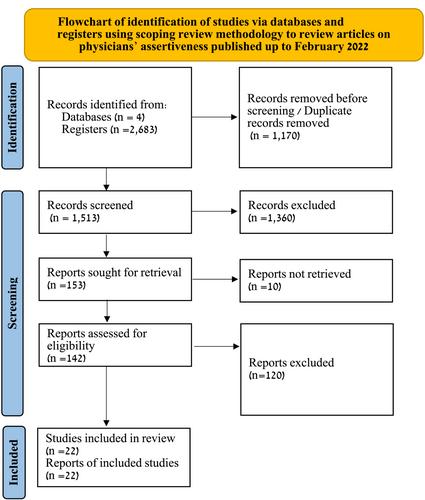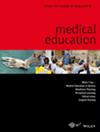Good relationships between physicians, patients, families and the healthcare team are essential for high-quality care. Medical encounters are sometimes challenging. They may include conflicts, requiring physicians to be assertive: that is to share and protect their needs, rights and values while preserving those of others. Whereas assertiveness has been studied in patients and nursing staff (those with less power in healthcare), physicians' assertiveness, which must be mindful of these power differences, lacks a comprehensive review. Thus, this scoping review focuses on assertive communication in physicians' encounters.
A literature search of four online databases: MEDLINE, Embase, PsycINFO and WoS, seeking articles on physicians' assertiveness as a communication style published until February 2022. The Joanna Briggs Institute approach and the Preferred Reporting Items for Systematic Reviews checklist underpinned the review protocol.
We identified 1513 articles relating to assertiveness, reviewed 153 full-text articles and selected 22 for full review, 68% from the last decade. The articles focused mainly on assertive communication and relationships with medical staff, with 54% focusing on bottom-up power relations. In 40% of the articles, no clear definition of assertiveness was included. Definitions included had varied focus: on self, on the other or both. Overall, assertiveness measures varied widely, precluding a methodical comparison.
Despite the growing interest in physicians' assertiveness, a clearer definition and in-depth exploration of assertiveness are needed alongside development of valid measures of assertiveness appropriate to physicians. Based on the review, we offer a relational definition of assertiveness as the capacity to communicate one's views, concerns, rights and needs while respecting others and preserving therapeutic, collegial and educational professional alliances. This definition may serve to expand research in the field while offering a professional alternative to problematic communication styles—passive and self-denying or paternalistic and aggressive —that obfuscate and thus undermine physician–patient relationships.




